One of the darkest periods in British history is still the Moors Murderers, a case that shocked the country and forever altered its cultural memory. The notorious criminal pair responsible for these horrible crimes, Ian Brady and Myra Hindley killed five young victims in a series of brutal murders. Brady and Hindley worked together to organize a reign of terror that scared towns and left families in mourning; its effects are still visible today.
Table of Contents
Early Lives of Ian Brady and Myra Hindley
On January 2, 1938, Ian Brady was born in Glasgow, Scotland. He was raised in a troubled family and experienced a challenging upbringing marked by instability and emotions of abandonment. Brady developed a fascination with violence and dark themes after his mother sent him to live with relatives. After that, he relocated to Manchester, where he earned a reputation as a disturbed and rebellious young man.
Myra Hindley was born in Manchester, England, on July 23, 1942. She grew up in a harsh and violent home and had a difficult childhood. Hindley battled with her self-image and looked to others for approval. When she first met Brady in her early twenties, their connection grew stronger, eventually leading them down a dark path.
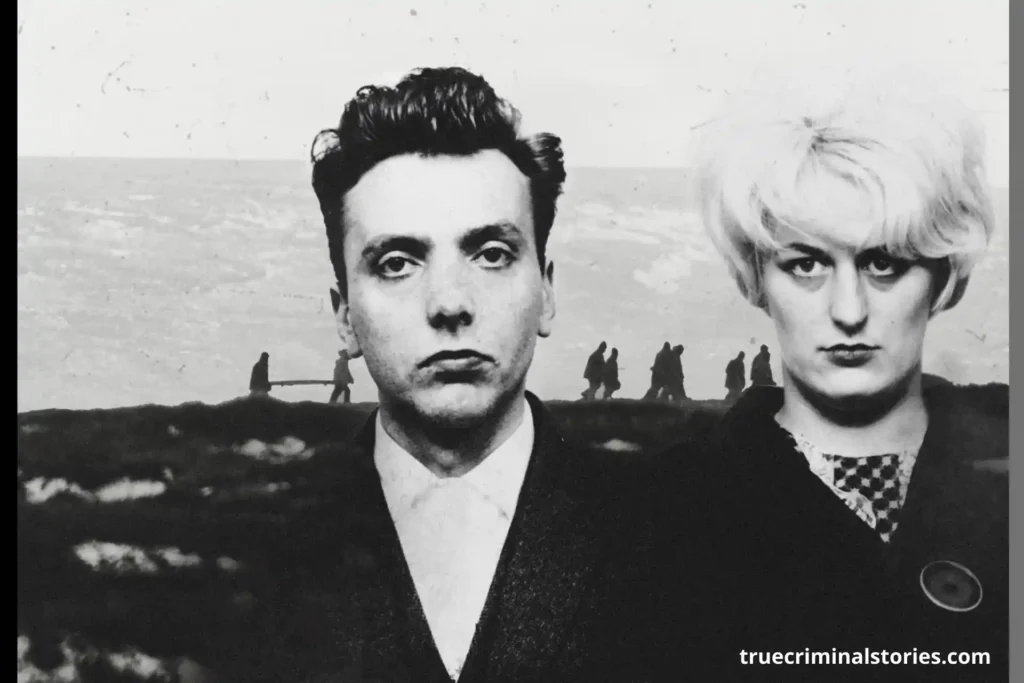
The Meeting of Ian Brady and Myra Hindley: Partners in Crime
Myra Hindley and Ian Brady first met in 1961 while working together at a Manchester supermarket store. They soon became close because of their common interests, with Hindley being captivated by Brady’s eerie charm and her need for adventure. They started dating, and their mutual fascination with violence and power was a defining characteristic.
Their depravity increased with the depth of their bond. After Brady exposed Hindley to his sadistic fantasies, she grew more and more fascinated with his philosophy. They started planning their horrific acts, enticing young victims with the promise of friendship and adventure.
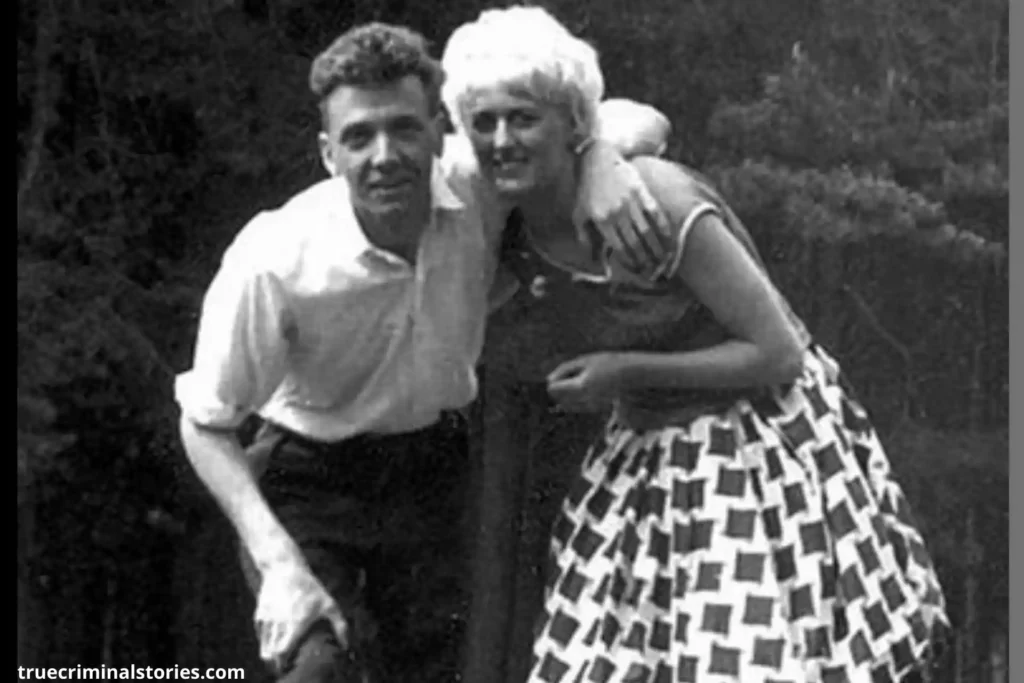
Brady and Hindley were a deadly duo because of Brady’s cunning and Hindley’s obedience. Their partnership, founded on a mutual desire for power and authority, ultimately resulted in horrific deeds that stunned the country. Together, they not only destroyed innocent lives but also left a lasting stain on the collective memory of the British public.
Explore the bloody legacy of Bonnie and Clyde, another infamous criminal duo whose actions impact American culture.
The Moors Murders: A Dark Chapter in British Crime History
The Moors murders were a series of child killings committed by Ian Brady and Myra Hindley in and around Manchester, England, between July 1963 and October 1965. The victims were five children—Pauline Reade, John Kilbride, Keith Bennett, Lesley Ann Downey, and Edward Evans, at least four of whom were sexually assaulted. The bodies of two of the victims were discovered in 1965 in graves dug on Saddleworth Moor; a third grave was discovered there in 1987, more than twenty years after Brady and Hindley’s trial. Bennett’s body is also thought to be buried there, but despite repeated searches, it remains undiscovered.
The crimes, dubbed the Moors Killings, sent shockwaves through the United Kingdom, not only because of the number of young lives taken but also due to the cold, calculated manner in which they were carried out.
The first victim was 16-year-old Pauline Reade, followed by 12-year-old John Kilbride, 12-year-old Keith Bennett, 10-year-old Lesley Ann Downey, and 17-year-old Edward Evans. Each of these victims met tragic ends, their lives cruelly cut short in one of the most senseless acts of violence in modern British history.
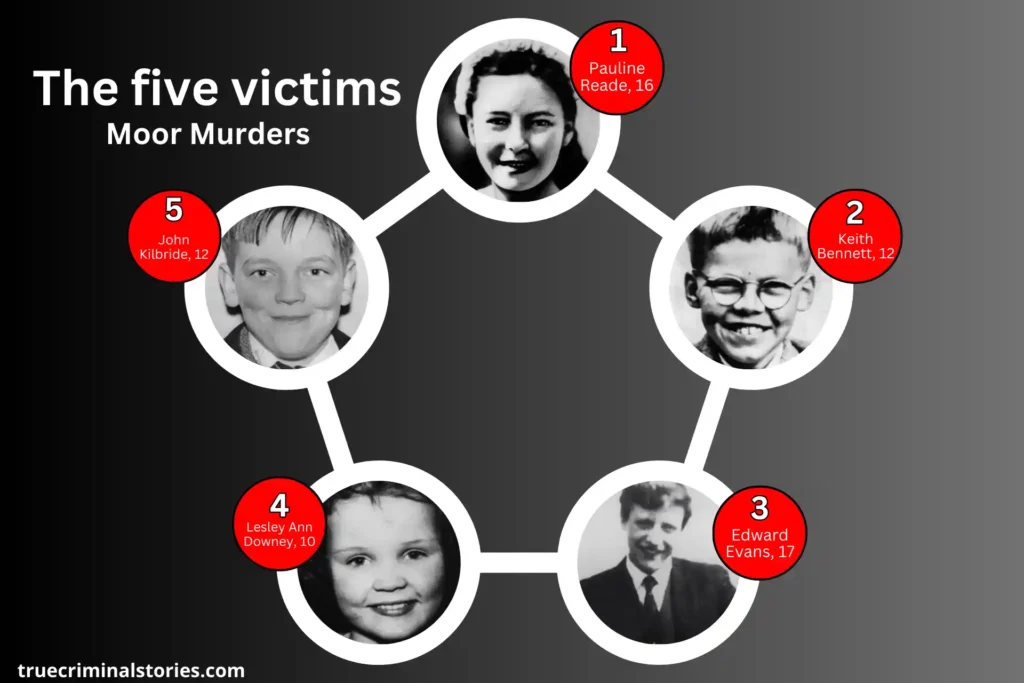
Delve into the troubling early lives of Ian Brady and Myra Hindley and compare their backgrounds with other infamous Serial Killers.
How Ian Brady and Myra Hindley Terrorized the UK?
The relationship between Ian Brady and Myra Hindley has long been the focus of discussion and study. Many people wonder if Hindley was an equal participant in the Moors Murders or a woman duped by a controlling and nasty partner. However, Hindley was certainly a key player in the terrible crimes against humanity. She helped Brady lure kids, often convincing them to get into their automobile by projecting an air of trust.
Known as one-half of the Moors Murderers, Brady was responsible for a brutal killing spree that shocked the United Kingdom in the 1960s. As a deadly duo, Brady and Hindley fueled each other’s psychotic cravings. By taking pictures of the victims and helping to dispose of them, Hindley was far from being a passive observer. Her involvement in these horrific crimes is undeniable, despite her later attempts to portray herself as a victim of Brady’s manipulation.
The Heartbreaking Story of Keith Bennett
The disappearance of Keith Bennett remains one of the most heartbreaking aspects of the Moors Killings. In June 1964, Keith was visiting his grandmother when he encountered Myra Hindley and Ian Brady. He was never seen again. Unlike the other victims, Keith Bennett’s body was never found, leaving his family in eternal anguish.
For years, Keith’s mother, Winnie Johnson, tirelessly campaigned for information that would lead to the discovery of her son’s remains. Even after Brady died in 2017, Keith’s body has yet to be recovered, making his disappearance a tragic symbol of the unresolved horrors of the Brady Moors Murders.
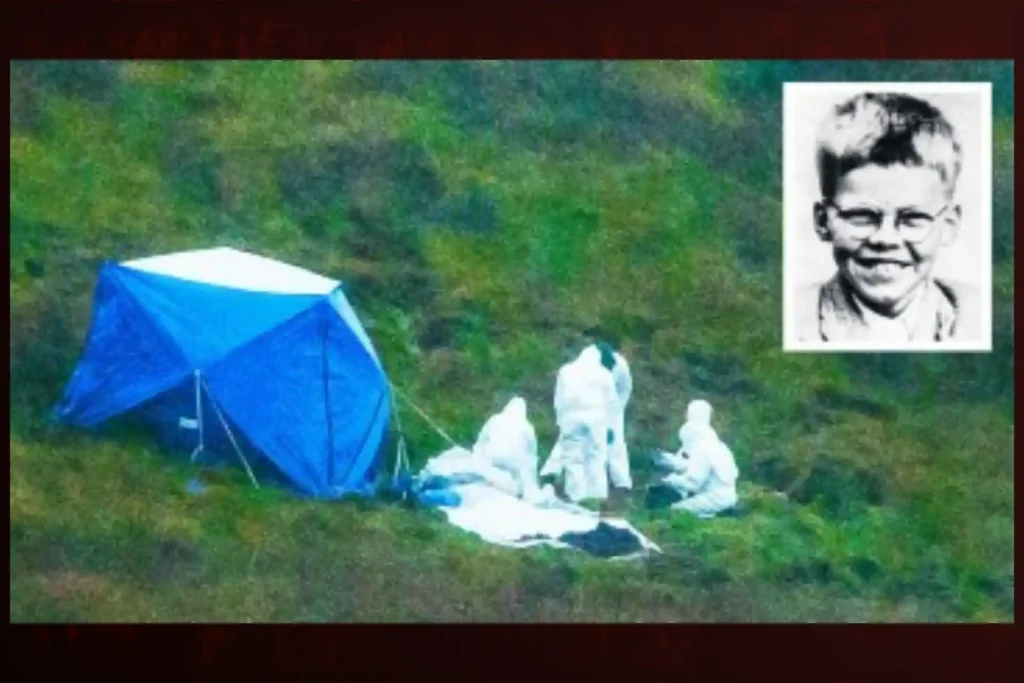
The Arrest and Trial of the Moors Murderers
The downfall of Ian Brady and Myra Hindley came in October 1965 following the murder of 17-year-old Edward Evans. Hindley’s brother-in-law, David Smith, witnessed the brutal killing and reported it to the police, leading to their arrest. During the investigation, the horrifying extent of their crimes began to unfold, including the discovery of photographs and audio recordings of some of the murders.
The pair were given life sentences under a whole life tariff and were only charged with Kilbride, Downey, and Evans’ murders. Brady was said to have confessed to the murders of Reade and Bennett, which led to a reopening of the inquiry in 1985. In 1987, Hindley admitted to all of the killings and stopped claiming her innocence. While Brady was unapologetic, Hindley sought to distance herself from her past, attempting several appeals for parole throughout her time in prison. However, her notoriety as the Moors Murderer Myra Hindley meant that public opinion was heavily against her release.
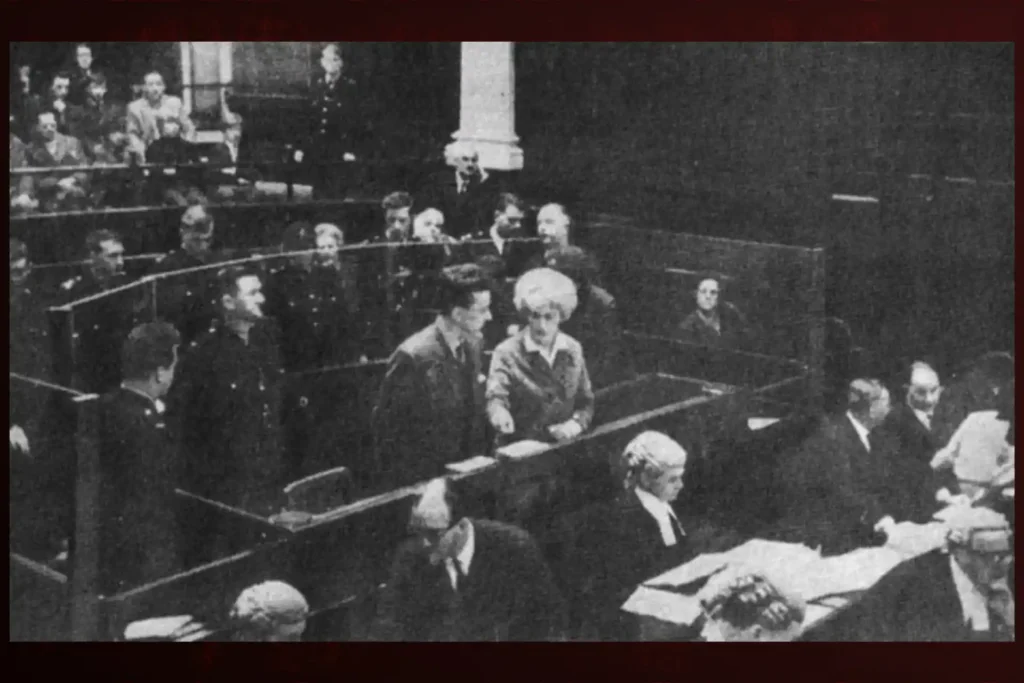
Brady was diagnosed as a psychopath in 1985 and confined in the high-security Ashworth Hospital. He made it clear that he wished never to be released and repeatedly asked to be allowed to die. He died in 2017 at Ashworth, aged 79, having served 51 years. After 36 years in prison, Hindley passed away in 2002 at the age of 60 in West Suffolk Hospital. For many, their deaths brought little comfort, as the scars of the Moors Killings will never fully heal.
Related Stories
- Jane Toppan: From Trusted Nurse to Serial Killer
- Juana Barraza: The Deadly Secrets of La Mataviejitas
- JonBenet Ramsey Murder: Mystery That Still Haunts Us
The Search for Justice and the Impact on the Victims’ Families
The Moors Murders had a profound impact on the victims’ families, some of whom dedicated their lives to seeking justice. Among them was Lesley Ann Downey’s mother, Ann West, who became a prominent campaigner against parole for Hindley. The trauma of these events and the continued denial of closure for families like the Bennetts ensured that the case remained in the public consciousness long after the trial.
Discover other notorious female serial killers and the motivations that drove them to commit violence.
Enduring Impact of the Moors Killings
The Brady Moors Murders cast a long shadow over British society. These heinous acts not only changed the landscape of criminal justice in the UK but also left an indelible mark on the collective psyche. The use of the moors as burial grounds, the detailed planning, and the sheer brutality of the killings set these crimes apart, making Myra Hindley and Ian Brady two of the most infamous figures in British criminal history.
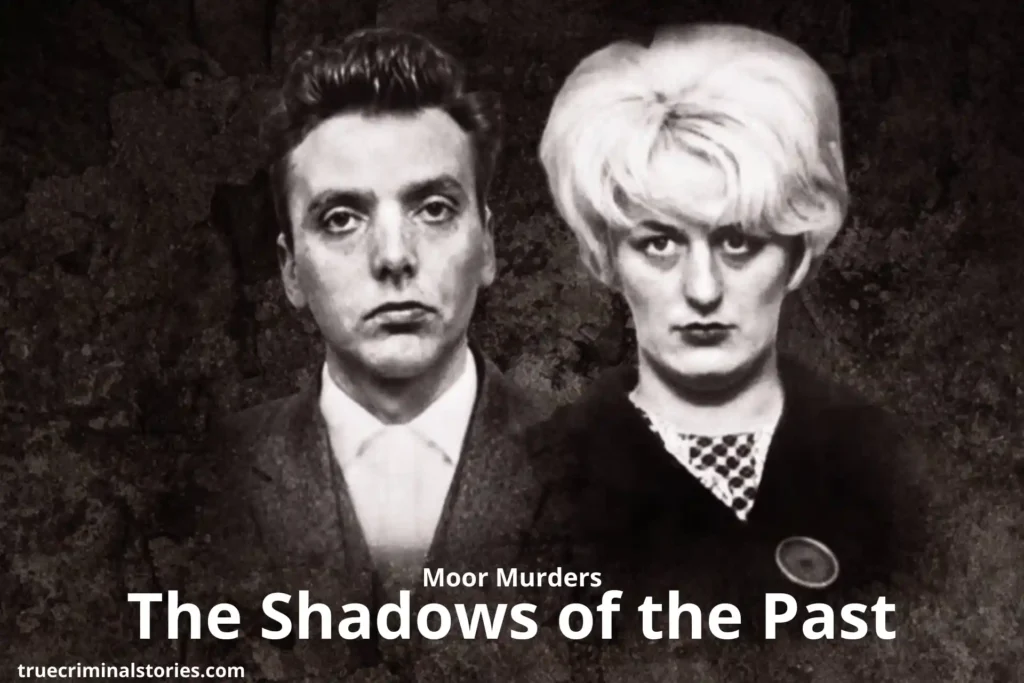
Despite their deaths, the search for Keith Bennett continues, a tragic reminder of the lasting legacy of their crimes. The story of the Moors Murderer Myra Hindley serves as a cautionary tale of manipulation, evil, and the devastating consequences of unchecked desire for power over others.
Read about Nannie Doss, whose charming exterior hid a deadly past, similar to Hindley’s facade before her crimes were uncovered.
Conclusion
Myra Hindley and Ian Brady will forever be remembered as two of the most vile and notorious criminals in the UK. The Moors Murders, with the continued mystery surrounding Keith Bennett’s remains, remain a chilling testament to the depths of human depravity. Even in death, the shadow of the Moors Murderers continues to loom large over Britain, a reminder of the innocence lost and the families shattered by their actions.
FAQs
Who were the victims of the Moors Killings?
The victims of the Moors Killings were Pauline Reade, John Kilbride, Keith Bennett, Lesley Ann Downey, and Edward Evans. Hindley and Brady tragically murdered each of them during their horrific crime spree.
What happened to Keith Bennett’s body?
Sadly, Keith Bennett’s body has never been found. Despite extensive searches and the pleas of his family, his remains remain undiscovered, leaving a heartbreaking chapter of the Moors Murders unresolved.
What sentence did Myra Hindley receive?
Myra Hindley was convicted of murder in 1966 and sentenced to life in prison. Despite several attempts to appeal for parole, she remained incarcerated until she died in 2002.
Did Myra Hindley ever show remorse for her crimes?
Over the years, Myra Hindley claimed she was manipulated by Ian Brady and expressed remorse for her actions. However, many, especially the families of the victims, doubted her sincerity and her attempts for early release were strongly opposed by the public.
Why are the Moors Murders still talked about today?
The Moors Murders are remembered due to the shocking nature of the crimes, the young age of the victims, and the involvement of a woman in such brutal acts. The case left an indelible mark on British society, and the ongoing search for Keith Bennett’s remains continues to draw public attention.